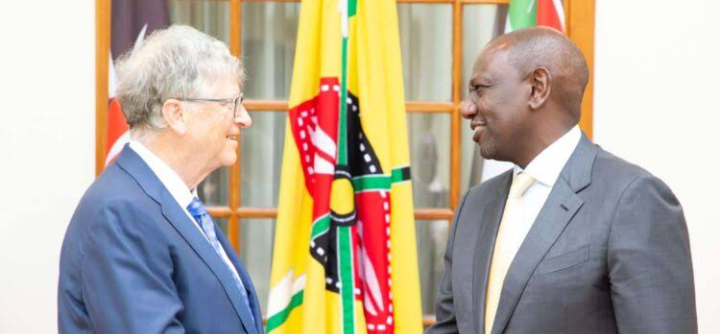Kenya’s recent move to grant the Bill & Melinda Gates Foundation diplomatic privileges and immunities has prompted significant public and political interest.
Through a legal notice published by Prime Cabinet Secretary Musalia Mudavadi, the Foundation now enjoys a range of protections and exemptions typically reserved for diplomatic and international bodies under the Privileges and Immunities Act.
This arrangement provides the Foundation’s expatriate staff immunity from lawsuits related to their official duties, exemption from direct taxes on their emoluments, and relief from certain immigration and national service obligations.
The immunities also extend to their spouses and dependent relatives, allowing them freedom from immigration restrictions, tax exemptions on imported goods, and protection during repatriation in crisis situations.
The Privileges and Immunities Act, the legal framework for these special permissions, is commonly used to formalize Kenya’s partnerships with international organizations, thereby enabling efficient operations and smooth project implementation in Kenya.
For the Gates Foundation, which operates across more than 140 countries, these exemptions align with its commitment to tackling health, poverty, and inequality in low-income regions.
In Kenya, the Foundation has supported initiatives in agriculture, healthcare, sanitation, and digital financial services for years. Its immunization programs, tools for food security, and contributions to gender equality have been particularly impactful.
The Foundation’s immunities in Kenya come amid ongoing collaborations, such as its support for the Maisha Namba initiative Kenya’s new digital ID program.
The Gates Foundation is not only providing technical support but also financial backing to ensure that vulnerable populations are reached.
Kenya’s government views this relationship as part of a strategic plan to attract international funding and expertise to support essential services and address critical social issues, including disease control and food security.
According to Mudavadi, these immunities were granted to allow the Foundation to focus on its objectives without facing bureaucratic hurdles, thereby improving program efficiency.
Some Kenyan lawmakers and citizens have voiced concerns.
They argue that granting extensive privileges could limit the government’s oversight, raising questions about accountability and transparency.
Critics highlight that immunity from legal processes may hinder local mechanisms to address potential grievances against the Foundation’s operations.
The tax exemptions and legal protections enjoyed by expatriate employees have sparked debates on fairness and the extent of benefits provided to foreign entities at the expense of local systems.
The Gates Foundation responded to these concerns, affirming that it adheres to Kenya’s legal frameworks and operates in alignment with government agreements.
The Foundation’s Deputy Director of Global Communications, Buhle Makamanzi, stated that these privileges are similar to those granted to other foundations and nonprofits globally, which helps ensure smooth collaboration with host countries.
According to Makamanzi, these arrangements help reduce administrative burdens, enabling staff to focus on development work rather than procedural obstacles.
By granting the Gates Foundation these privileges, Kenya underscores its intention to leverage international support to bolster domestic development goals.
Such partnerships with globally influential organizations can help Kenya address major challenges, including healthcare access, food security, and economic inequality.
However, the government’s approach will likely require ongoing scrutiny and adjustments to ensure that both the nation’s interests and accountability standards are upheld.
Kenya’s experience with the Gates Foundation may also shape future negotiations and conditions for international partnerships, possibly influencing other countries in the region.





















Add Comment